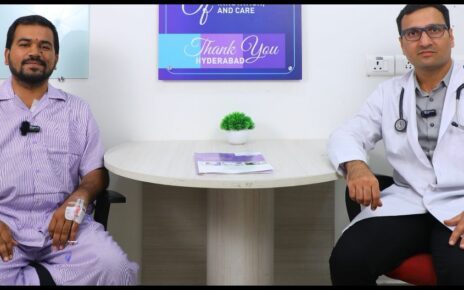Trichy, 9th December 2024 : Pneumonia is a widespread lung disease across the world. Yet, awareness about pneumonia among masses is not much.
What is pneumonia, after all?
“Pneumonia is an infection in your lungs. It can be caused by bacteria, viruses or fungi,” says Consultant Pulmonologist Dr.K.Ramasubramaniam, Pulmonologist at Kauvery Hospital, Trichy. Pneumonia, according to him, will cause your lung tissue to swell, and can lead to the collection of fluid or pus in your lungs.
Pneumonia can affect one or both lungs. Pneumonia can be caused by bacterial or viral respiratory pathogens. The former, however, is more severe than the latter, and may resolve on its own at times.
Categorising Pneumonia
Pneumonia is categorized based on how one acquires it. When you get pneumonia outside of a healthcare facility, it is called community-acquired pneumonia (CAP). Infection with Streptococcus pneumoniae bacteria is the most common cause of CAP. Viruses that cause common cold, flu, Covid- 19 and RSV, and sometimes fungi like Cryptococcus can also lead to CAP. Hospital-acquired pneumonia (HAP) is another category that one gets while in hospital for another illness. “It is more serious than CAP since it is caused mostly by antibiotic-resistant bacteria. CAP is the leading cause of morbidity and mortality worldwide and the most common infectious cause of death which claims millions of lives each year.
What do statistics say?
Community-acquired pneumonia (CAP) claimed 2.2 million lives, including 502,000 children under five in 2021 according to the Global Burden of Disease. It is not surprising that most deaths occur in the poorest populations in the low and middle income countries (LMICs) where access to medical facilities and quality treatments are a constraint.
Who is at higher risk of getting pneumonia?
People above 65, those suffering from diabetes mellitus, chronic kidney disease, malnutrition, HIV and those who are exposed to air pollution and smoke are at higher risk of contracting pneumonia.- Low vaccination rates and lack of breastfeeding are additional risks. One should not forget that respiratory pathogens are transmitted from person to person via droplets. Following inhalation, the pathogen will colonize the nasopharynx, and then reach the lung via microaspiration, damaging the lung in the process, resulting in pneumonia.
Pneumonia: Signs & Symptoms
Symptoms of pneumonia include cough, sputum, breathing difficulty, fever, chest pain, fatigue/weakness, altered mental status, hypotension and multi-organ dysfunction. Those suffering from a severe form of pneumonia and those with multiple comorbidities will require hospital-based treatment in which antibiotics and antivirals play a pivotal role.
Preventive Measures
Vaccination for adults and children, stopping smoking, avoiding indoor and outdoor pollution, healthy diet, and regular physical activity are necessary to escape from the grip of pneumonia. Majority of pneumonia happens during winter. So, it is advisable to take a vaccine that will protect us from seasonal infections. This way, we can prevent viral pneumonia and post viral secondary infection. “One should remember that pneumonia is a highly contagious disease. This being so, it is important to follow a strict hygiene regimen to prevent its spread,” cautions Dr.Ramasubramaniam.
Hygiene Matters
It means that one should wash hands with soap and water before eating, before handling food and after using the restroom. One should also avoid close contact and sharing items with others.
Every Breath Counts; Stop Pneumonia in Its Track
World Pneumonia Day is observed on November 12 every year. This year, the theme of World Pneumonia Day is ‘Every Breath Counts; Stop Pneumonia in Its Tracks.’
Awareness – Need of the Hour
So, let us create awareness by spreading the message and educating people about pneumonia, which can prove fatal in the absence of early detection and proper treatment.




